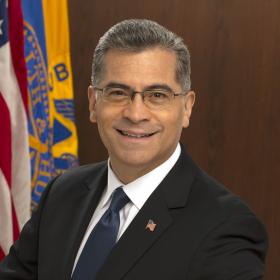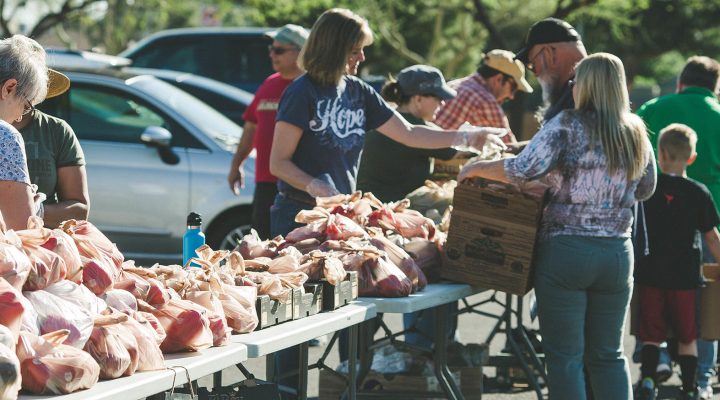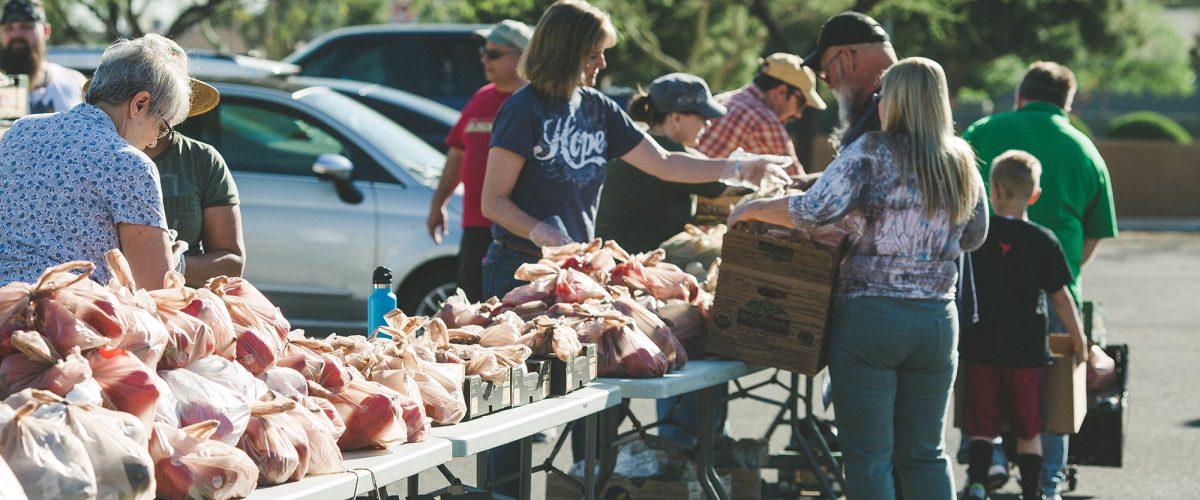Religious liberty advocates are hailing a new Biden administration rule that protects the recipients of federally funded social services from discrimination by the religious groups that administer them.
The White House measure is designed to prevent faith-based organizations that receive taxpayer money to operate food banks, homeless shelters and other services from withholding aid based on clients’ religious identity or their refusal to participate in sectarian activities.
“This new rule restores the focus on beneficiaries of government-funded services — protecting the religious liberty rights of people in need,” said Holly Hollman, general counsel of Baptist Joint Committee for Religious Liberty.
Religious-liberty protections had been in place in those situations since the early 2000s but were eliminated when the Trump administration permitted faith groups to use belief as a barrier to service.
The Trump administration permitted faith groups to use belief as a barrier to service.
“The Biden administration rightly recognizes that religious entities should be able to provide services, and this rule ensures that beneficiaries are not subjected to extra hurdles to obtain the government-funded services they are qualified to receive. Americans who qualify for taxpayer-funded social services should never face religious coercion or religious requirements,” Hollman said.
Services covered by the new measure include faith-based elder care programs, domestic violence and homeless shelters, food banks, clothing closets and others. Actions banned by the rule include requiring clients to share or join a faith tradition, or to attend worship or Bible studies to receive assistance.
The rule directly affects nine federal agencies with offices of Faith-Based and Neighborhood Partnerships, which Biden reestablished in 2021. The U.S. departments of Agriculture, Education, Health and Human Services, Homeland Security, Housing and Urban Development, Justice, Labor, Veterans Affairs, and the U.S. Agency for International Development also helped craft the new rule.

Xavier Becerra
“Today’s announcement establishes uniform policies to safeguard Americans from religious discrimination in social services,” U.S. Health and Human Services Secretary Xavier Becerra said March 1. “These regulations aim to guarantee broad access to essential social services for eligible individuals, reinforcing awareness of religious liberty protections.”
The new rule represents protections for key constitutional rights, said Rachel Laser, president of Americans United for Separation of Church and State. “When the government funds vital services, it must ensure these programs are open to people of all faiths and the nonreligious and that religion is not being misused to deny people services or their civil rights.”
AU filed a lawsuit in 2021 challenging the Trump administration’s rollback of religious liberty protections for services provided by federally funded faith groups. The suit, which has been on hold as the measure was being finalized, asserted Trump’s action included no explanation for the change and did not account for the harms it could cause.
“Religious freedom is a foundational American principle. No one should have to give up their religious freedom in order to have access to critical services,” Laser said. “No one should ever be pressured to participate in religious activities or be required to meet a religious litmus test in exchange for the help they need.”
In 2023, the Interfaith Alliance, BJC, Lambda Legal, the National Black Justice Coalition, People for the American Way and nearly 50 other national faith and secular groups urged the federal government to proceed with the directive.
“The Proposed Rule … re-centers people in need, restoring their religious freedom protections and making it more likely that they can access critical services,” the organizations said in a letter issued by the Coalition Against Religious Discrimination. The document was submitted to the nine agencies covered in the directive.


